The Chemistry of Beer Making AND WHY BEER IS AMAZING (on a philosophical level)
So I'm a mechanical engineer. I just finished my last chemistry course. So, might as well pass some knowledge and convert the complex terms of what I know into a discourse that an average reader would enjoy. So, enjoy. Also, I normally don't post two stories in a day. My dad is going to buy me a sick jacket if I two stories. So yep...
BACKGROUND ON BEER
So, seeing how my dad is one of those crazy conspiracy theorist, Obama is a muslim, and the water is turning the frogs gay republican, AND on my first article where I asked the readers if they identified with that, AND THEY DO; I can make the educated assumption that most of you guys on here like beer. Am I wrong? Okay so, you already know that beer is a tasty beverage and makes you a lady killer. Good for you hotshot. But did you know that:
- Beer is one of the most widely consumed alcoholic drinks in the world
- Third most popular drink before tea and water?
- Most popular way to get a party started?

Actually, you probably already knew that. But do you know that this beverage is also one of the oldest drinks of humanity? First evidence of beer production dates back to ancient Egypt and Mesopotamia. Not only that, but what should be mind blowing is that beer has been brewed before anyone understood what turned the ingredients into alcohol. Well, we humans came a long way. Let's get to the nitty and gritty.
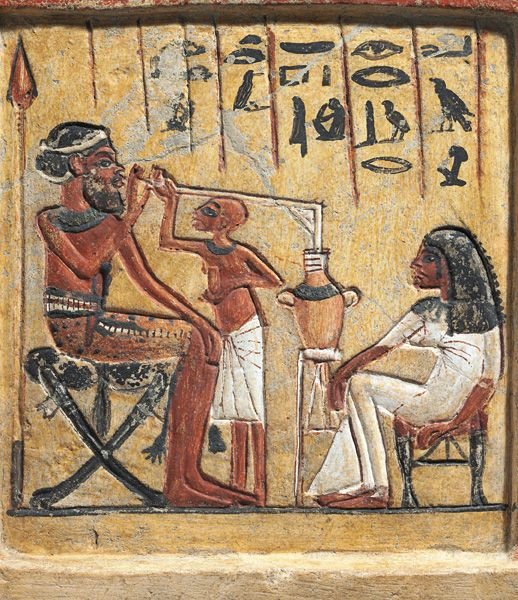
THE CHEMISTRY IN BEER MAKING
So for an average beer the basic ingredients are:
- Barley (your carbohydrates)
- Hops ( small, green cone-like fruit of a vine plant. They provide bitterness to balance out all the sugar in the wort and provide flavor. They also act as a natural preservative, which is what they were first used for)
- Water (your H2O)
- Yeast (your catalyst)
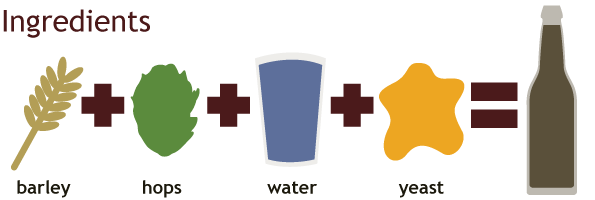
So here's some steps in brewing. By the way, I should add that after taking the class I have purchased the necessary components to create some badass beer.
Malting
So, you got your barley, and you want it to be malted. What does that mean? Well, malting is a complex process that involves many enzymes, of which I won't list. To malt the barley, the need to germinate the grains. To do that, you soak them in water. When it is germinated enough, you halt the germination process by drying it with hot air. The main goal of this is to isolate the enzymes.
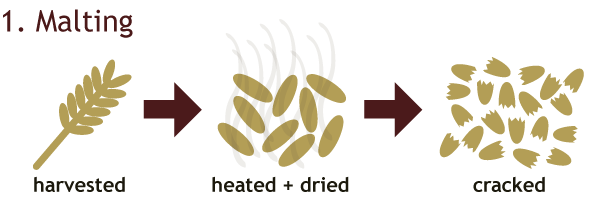
Mashing
So, what happens in mashing is:
- The grains are steeped in hot, but not boiling, water for about an hour
- This activates enzymes in the grains that cause it to break down and release its sugars
- Once this is all done you drain the water from the mash which is now full of sugar from the grains
- What’s left is wort, a sticky liquid
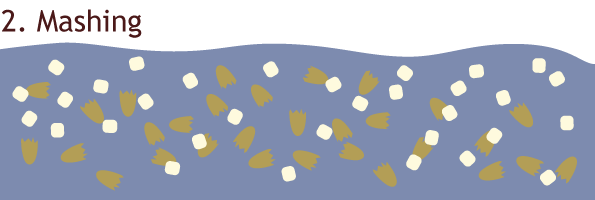
Boiling
The wort is boiled for about an hour while hops and other spices are added several times. After an hour and the wort is cooled, strained and filtered, it will be put in a fermenting vessel and yeast will be added. Then my favorite process, fermentation.
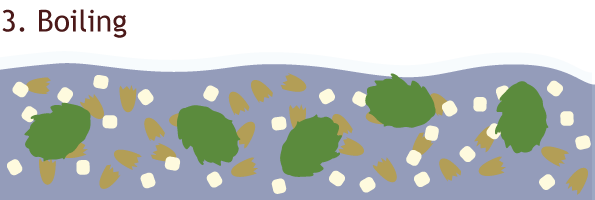
Fermentation
Brewing is complete and the fermentation begins.
- The beer is stored for a couple of weeks at room temperature or many many weeks at cold temperatures (depending on what beer is made)
- The yeast will begin fermentation
- The yeast consumes the sugar in the wort and releases out CO2 and alcohol as waste products
C6H12O6 + Yeast → 2C2H5OH + 2CO2
The reaction above is this (Glucose/sugar) + (Yeast enzyme zymase) → (Ethanol) + (Carbon Dioxide)
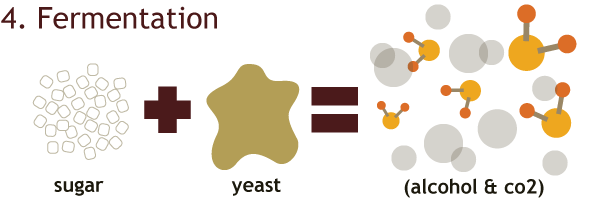
If you made it this far and actually read it... DAMN!!! You are a scholar. Well, you made it to my favorite part and I can't wait to explain this next part to you.
So, let's say that the sugar is some food. And think of a human eating it, converting it to energy, and releasing the waste. Well, that's what the yeast does. Yeast is a fungus. It needs a supply of energy for living and growth. The sugar supplies this energy. Alcohol and the CO2 are waste products. Think about that; what humans want is the waste product of a fungus. Isn't that fascinating how the world works? Also, take a look at the reaction. I'll just explain incase you don't have any chemistry background. But, see the C6H12O6 and how the numbers divide perfectly in to the 2C2H5OH + 2CO2. The yeast is the enzyme; it's what breaks apart the sugar. It's just beautiful how things work like this at the molecular level. And think about this, back then, we humans figured this out without knowing the chemical processes for thousands of years.
Ahem, okay final part.
Bottling and Aging
So, sweet, an alcoholic beverage has been achieved. So, for carbonization, the drink can either be...
A. Artificially carbonated (like soda)
B. Bottle conditioned; to naturally carbonate via the CO2 the yeast produces.

CONCLUSION
Wow, I wonder if you actually read this. If you didn't bother to read it, at least look at the fermentation. I get a little existential in that section. But anyway, look at how amazingly beautiful and complex the world is. Did you know the utilization of the natural processes is biotechnology? Biotechnology is not a new concept; traditional products like bread, beer, cheese, wine, and yogurt all make use of natural processes. I'm not familiar with how (on a scientific understanding level), but I do know that penicillin was extracted from mold from similar techniques like beer. Think about this, in 1928, Sir Alexander Fleming managed to extract penicillin from mold. In the 1940s, large-scale fermentation techniques were developed to make industrial quantities of penicillin. The process of making beer is bigger than it seems.
Thank you for reading this. I actually had fun writing this. Now I get a shirt too. Stay thirsty my friends.

Nice post on a subject close to me, I have been an enthusiastic home brewer since 2007.
Thank you! It means a lot, especially from an experienced home brewer!
Killed me at the end there, but at least I had my beer.
Haha funny! Thanks for reading it!
Thank you for sharing your knowledge with us. Worldwide, a lot of people drink beer and the number keep growing.
I'll drink to that.
Cheers!
Congratulations @calcuvin! You have completed some achievement on Steemit and have been rewarded with new badge(s) :
Click on any badge to view your own Board of Honnor on SteemitBoard.
For more information about SteemitBoard, click here
If you no longer want to receive notifications, reply to this comment with the word
STOPBy upvoting this notification, you can help all Steemit users. Learn how here!
Solid! Give me alllllll that waste product! Lol Great post, keep up the good work dude
Thank you very much!! And yes, yeast waste product is amazing hahaha
Nice post!
I enjoyed learning about the beer process. 🍻
I always wanted to try my hand at making beer but it is just so much more fun to drink it!
Interesting stuff! It'd be great if you linked to yours sources in the future :)
I'm in college haha I should have linked my sources by instinct! Thank you for saying that, appreciate it! I will link my sources for sure
amazing article!
I'll drink a couple of beers now lol